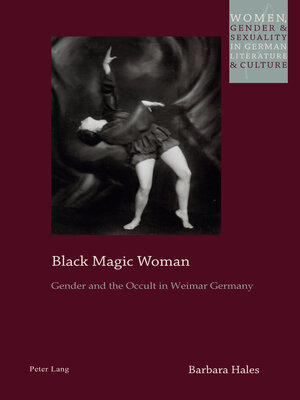Black Magic Woman
ebook ∣ Gender and the Occult in Weimar Germany · Women, Gender and Sexuality In German Literature and Culture
By Helen Watanabe-O'Kelly

Sign up to save your library
With an OverDrive account, you can save your favorite libraries for at-a-glance information about availability. Find out more about OverDrive accounts.
Find this title in Libby, the library reading app by OverDrive.



Search for a digital library with this title
Title found at these libraries:
| Library Name | Distance |
|---|---|
| Loading... |
This book is a study of women's involvement in occult practices in Weimar Germany. Women during the Weimar period experienced an unprecedented level of liberation. This included a greatly increased role in the work force as well as participation in other realms that were traditionally the province of men. They were also given the liberty to be more outwardly sexualized. Women engaging in occult practices during this period present an interesting example of the liberated woman. The occult woman reversed all traditional gender roles by the pretense of possessing powers that threatened male dominance.
The book investigates the significance of the occult in the Weimar period by drawing on popular, scientific, and legal writings of women's involvement in the occult. In addition to examining reports of women engaging in actual occult practices (expressive dance, mediumism, and witchcraft), this book also considers various fictional depictions of women as demonic or as possessing supernatural powers (ghosts, vampires, and monsters). The author contends that both actual practices, as well as fictional depictions, constructed an imaginary female identity as a dangerous and grotesque monster.







